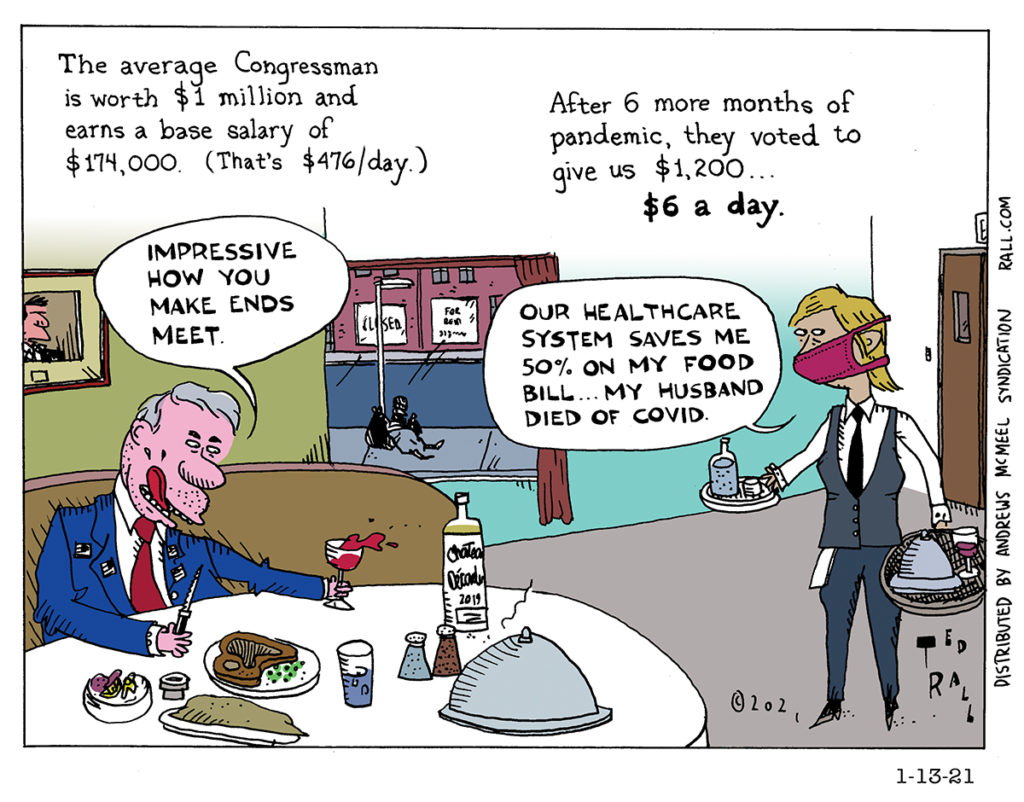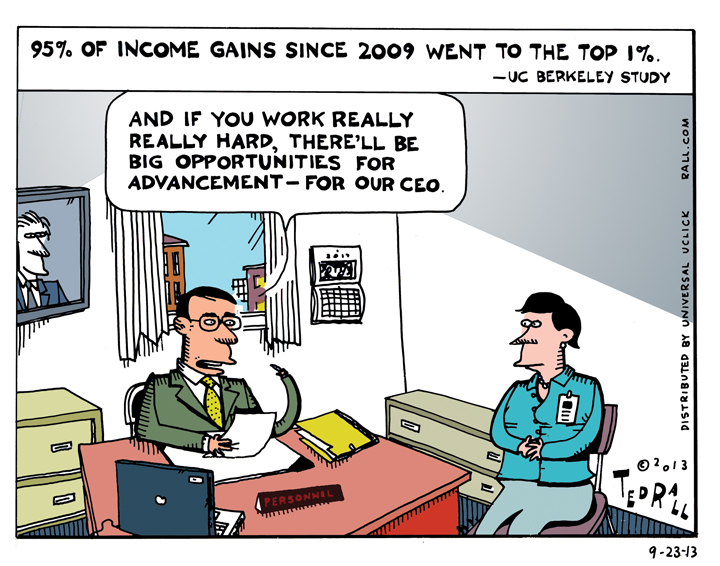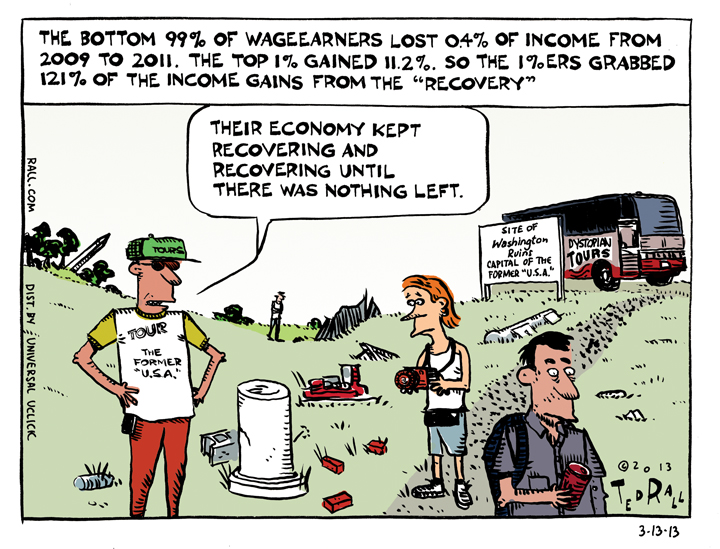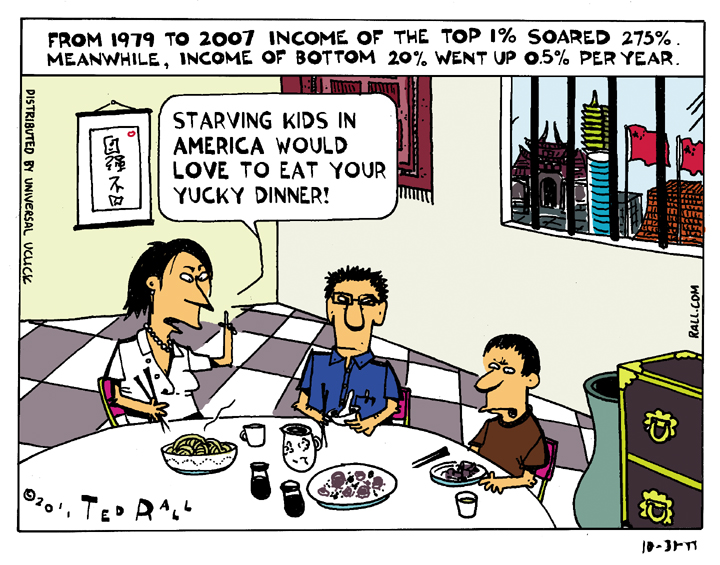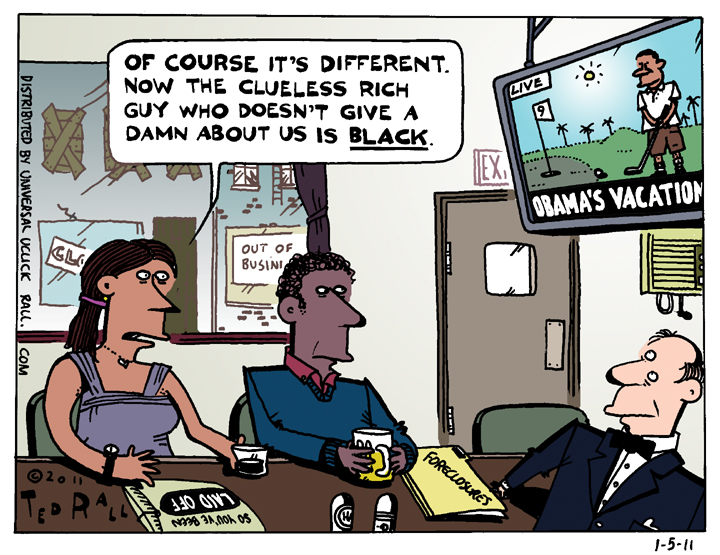The average congressman is worth $1 million and current base salary of $174,000 a year. Many of them are in considerably more. Yet they think it’s perfectly reasonable to stimulate the economy with $1200 checks every six months. No wonder the economy is tanking again.
SYNDICATED COLUMN: Distractor-in-Chief Trump Is Gaslighting Us Into Forgetting America’s Real Issues

Eight days before Donald J. Trump took his presidential oath before a crowd whose size the president still insists on fibbing about, I wrote a column titled “Life Under Trump—What Happens Now?”
“In a dictatorship, particularly where the despot is a megalomaniac in the vein of a Saddam Hussein or a Muammar Gaddafi, citizens obsess over the Great Leader’s every move. These days, there’s no better place to witness this phenomenon than the Central Asian republic of Turkmenistan,” I wrote on January 12, 2017. I described how the founding dictator of that post-Soviet authoritarian state was manic, “constantly passing edicts and decrees about anything and everything that crossed his mind.”
“Whenever I visited Turkmenistan under Turkmenbashi,” I wrote back then, “the only thing anyone ever talked about – and this included ex-pats – was Turkmenbashi.”
Sadly, my predictions usually come to pass. As I expected, the United States remains a democratic republic but under Trump, everyday life has assumed some of the characteristics of an authoritarian regime, especially our obsession with Trump.
OMG can you believe what he tweeted?
What the hell is wrong with him?
How long can this go on?
Trump’s antics have prompted two strains of pundit reaction. One, represented by the comedian John Oliver, urges us to “keep reminding yourself this is not normal.” Others argue for ignoring the Keeper of the Launch Codes, at least his tweets. Ever the contrarian, I subscribe to None of the Above.
You can’t ignore the President of the United States. He’s too powerful. On the other hand, chasing down and driving rhetorical stakes through a maniac’s barrage of nonsense is exhausting and futile. You feel like a character at dusk in a vampire novel — too many undead, not enough stakes, definitely not enough coffee. The proper tack is insipid: Keep Calm and Carry On.
Here I offer my apologies.
For 15 months I have, like my competitors in the mainstream media, been reacting to Trump: to his tantrums, to his weirdness, and the incongruous hypocrisy of Democrats who complain about stuff Trump does that is exactly the same as what Obama did (mass deportations, bombing Syria). To paraphrase Walter White in the last episode of “Breaking Bad,” it was fun. I enjoyed it. And frankly, I didn’t think he would last this long. Trump was the Political Satirist Full Employment Act of 2016. I didn’t want to miss out.
But I’ve been remiss. I have always tried to be forward-looking, to change the conversation, to argue for what we Americans ought to be doing and talking about. Reacting to the agenda of our worthless political “leaders” was something I left to the mainstream idiots of the corporate media.
I snapped back to reality a few days ago after reading another piece about the booming economy. Never mind whether Trump is priming the pump before busting the joint or whether the good times are about to end with yet another recession. Things are humming now — so now, while the getting is good, is while Americans ought to be demanding that Trump and his Congress fork over big bucks to fix the country’s long-neglected problems.
Workers ought to be out in the streets agitating for a raise: a $25-an-hour minimum wage is literally asking for nothing, since it’s the same, adjusted for inflation, as it was in the 1960s. I say go for $50. While we’re at it, let’s set a $200,000-a-year maximum wage. No one needs more.
Universal health care: it’s time America joined the rest of the First World (and most of the Third).
Three out of ten American workers are self-employed. They ought to qualify for unemployment benefits when they lose work.
A high-speed national rail system is essential to modernize America’s infrastructure and bring it up to global standards circa 1990. Estimated cost: $500 billion. No big deal: Obama spent $800 billion on his 2009 bank-giveaway stimulus bill.
Then there’s stuff that wouldn’t cost a dime, like doing something about guns and gender inequality and police brutality.
Lack of money isn’t why we’re not addressing these issues. Trump recently gave $1.5 trillion in taxpayer funds to his rich friends (and his family). The problem is a lack of focus — because we’re all too busy focusing on the Lunatic-in-Chief.
It’s time to stop being reactive. This is our country. This is our time. These are our lives. It’s up to us to ignore the twitterstorms and the random rants and demand what is our birthright as Americans: the best possible lives we can afford.
(Ted Rall (Twitter: @tedrall), the editorial cartoonist and columnist, is the author of “Francis: The People’s Pope.” You can support Ted’s hard-hitting political cartoons and columns and see his work first by sponsoring his work on Patreon.)
SYNDICATED COLUMN: Obama’s Governus Interruptus

Obama is a Uniquely Lazy, Ignorant, Weird President Who Has Done More to Undermine Faith in American Democracy Than We Could Have Imagined In Our Worst Nightmare
Obama will go down in history as a unique president. Because he’s black*, obviously.
Also because he’s a uniquely weird guy: a politician who knows nothing about politics — and doesn’t seem interested in figuring it out. Even while his presidency is in crisis, he’s so obliviously impassively oblivious you have to wonder if he’s living in the same dimension as the rest of us.
Officially (Dow Jones Industrial Average, rich people’s incomes, the fake unemployment and inflation figures issued by the Bureau of Labor Statistics), the economy is recovering. Officially, the wars are ending. (“On the ground” in Iraq and Afghanistan, not so much.) Yet Obama’s approval ratings are plunging, even lower than other recent two-term presidents at the same point in time — including the vile, insipid, illegitimate usurper Bush.
No wonder: Obama’s messaging is lousy. John McCain, a zillion years older than the president he lost to and operating with a brain damaged under torture, can see it — so why can’t Obama?
That’s what McCain was wondering aloud after a panel convened to advise Obama about the NSA issued its report: “Most presidents would have now given a speech and said, ‘OK, here’s what the recommendations are; here’s what I think we ought to do.’ Instead, it just came out.” Like a wet turd. “There’s not a translation of facts and events to remedies that the president supports.” How hard is it to tell the panel to submit their ideas to him first so he can repackage the ones he agrees with as his own? That’s Management 101.
Obama is ignorant. Doesn’t have a clue what his minions are up to. Which is bad. Obama’s ignorance is devastating because he lets us know that he doesn’t know. Reagan only read single-page memos, and though Americans suspected he was daft, they didn’t know. It makes a difference.
Chiming in from the even-a-right-winger-who-loved-Bush-can-be-right-twice-a-year corner of The Washington Post op-ed page, Charles Krauthammer marvels: “With alarming regularity, [Obama] professes obliviousness to the workings of his own government. He claims, for example, to have known nothing about the IRS targeting scandal, the AP phone records scandal, the NSA tapping of Angela Merkel. And had not a clue that the centerpiece of his signature legislative achievement — the online Obamacare exchange, three years in the making — would fail catastrophically upon launch. Or that Obamacare would cause millions of Americans to lose their private health plans.”
Dude went to Columbia and Harvard. He seems smart. What’s wrong with him? Is he — as his former colleagues at the University of Chicago, who noticed that he never published — lazy? He’s certainly a far cry from the LBJ who, according to his biographer Robert Caro, routinely burned the midnight oil committing every sentence of every bill, ever, to memory.
Obviously, a president who finds time to watch sports, play golf and kick off for vacations for weeks at a time — while the global economy is melting down — hell, while his signature legislative accomplishment, Obamacare has all but completely imploded — is lazy as all get up. Still, there’s nothing new about presidential sloth. Reagan, Clinton and Bush all worked less than the average minimum-wage worker whose misery they were steadfastly ignoring.
Obama is unique, though. It goes beyond laziness. He doesn’t follow tried and true practices of presidential governance that have served his predecessors for more than two centuries. Intentional? Who knows? It seems more than likely that (and this is so outlandish that I’ve literally waited years to write these words) he is so ignorant of history that he doesn’t know why and how previous presidents have failed and succeeded. Because, let’s face it, if this is three-dimensional chess, he’s down three queens.
The most blinding example of Obama’s ignorance of/unwillingness to/disdain for the act of governing/politicking is what I call Governus Interruptus — delivering a major speech on a problem, then failing to follow up with a policy initiative (a bill, say).
“President Obama’s speeches…are often thoughtful, nuanced, highly evocative, and exceptionally well-delivered — and worse than inconsequential,” Amitai Etzioni writes in The Atlantic. “They raise expectations — a world without nukes! Ending global warming! Finally curbing gun violence! — but are not followed by much of anything. These barren speeches are one reason the public, and especially the young, are becoming disaffected from politics, bad news for any democracy.”
Speaking of LBJ: When he announced “a national war on poverty” with one objective — “total victory” — to lift up the people “who have not shared in the abundance which has been granted to most of us, and on whom the gates of opportunity have been closed” — he didn’t leave it at that. Food stamps, Head Start and other anti-poverty programs followed…laws that began as bills. Bills drafted by the White House and proposed to Congress, which the president strong-armed into passing.
Where is Obama’s nuclear disarmament bill? Why hasn’t he convened a global summit to address the environmental emergency, with the U.S. leading the way with dramatic initiatives to reduce greenhouse gases? Where is his gun control proposal?
Obama jawboned his way into the White House. Evidently Obama hasn’t read enough to know that talking isn’t governing.
Either that, or he doesn’t care.
(Support independent journalism and political commentary. Subscribe to Ted Rall at Beacon.)
COPYRIGHT 2013 TED RALL
Big Raises – for the CEO
According to a study by UC Berkeley, 95% of income gains since 2009 went to the top 1%. Which makes one wonder: where is the incentive for the 99% to bust their asses working for the man?
Guest Blogger: The Lowdown on Thatcher
Susan here. Now that the Margaret Thatcher funeral celebrations are winding down, I think it best to present a passionate disection of her character by someone who has fought her for 40 years:
Please watch the entire episode before commenting. It’ll be worth the time spent.
SYNDICATED COLUMN: Against Philanthropy
As Hurricane Victims Freeze, Billionaire Mayor Gives Away $1 Billion to Wealthy Med School
New York City Mayor Michael Bloomberg made headlines over the weekend with his announcement that he has donated $345 million to Johns Hopkins University. Added to his previous donations, the media baron has given his alma mater over $1 billion – the largest charitable contribution to an educational institution in US history.
Bloomberg received plaudits for his generosity by the usual media sycophants. Along with death and taxes, another thing you can count on is being told to be grateful when masters of the universe give away some of their loot (even if none of it goes to you.) As pundits fawned, thousands of New Yorkers – residents of Queens whose homes got damaged by superstorm Sandy – were shivering under blankets in heatless homes in 15° weather because restoring electricity and housing storm victims isn’t one of the mayor’s top priorities.
Disgusting.
This was a man, New Yorkers remember, who wanted the mayoralty so badly that he subverted the people’s will, bribing and bullying the City Council into overturning term limits passed by an overwhelming majority so that he could keep the job a third term.
No one should claim that he didn’t want responsibility for those poor cold slobs out in the Rockaways.
If there’s anything more nauseating than watching this rich pig bask in the glow of his philanthropy while the citizens he is tasked with caring for turn into popsicles, it’s the failure of anyone in the system – columnists, local TV anchor people, even Bloomberg’s political rivals – to call him out. For $345 million the mayor could have put his city’s storm victims up at the Four Seasons for years.
Bloomberg’s donation to one of the wealthiest universities on earth, with an endowment of $2.6 billion, serves to remind us that philanthropy is evil.
You could argue that generous rich people are better than cheap rich people. And if you like the way things are, with the gap between rich and poor at record levels and spreading – you’d be right. But most people are not happy with our winner-take-all economy.
No one deserves to be rich. And no one should be poor. Everyone who contributes to society, everyone who works to the best of their skills and abilities, deserves to earn the same salary. Of course, I realize that not everyone adheres to such basic Christian – er, communist – principles. (Anyone who denies that Jesus was a commie never cracked open a Bible.)
But most people – certainly most Americans – agree there’s a line. That too much is too much. People like Michael Bloomberg and Steve Jobs and Bill Gates may have worked hard and created products that consumers purchased in great numbers – but no one can work $25 billion hard (Bloomberg’s estimated net worth). There aren’t that many hours in the day; the human skull doesn’t contain enough synapses; no idea is worth that much.
One of the big problems with charitable giving is that it mitigates the injustice of inequality: sure, maybe it’s a little crazy that Bloomberg has 11 luxurious homes while people are starving to death and sleeping outside, but at least he’s generous. He’s giving it away. The implication, that the chasm between rich and poor isn’t that bad, is a lie. It’s also evil: If inequality isn’t that bad, it’s not important to talk about – much less fix.
“For many people, the generosity of these individuals who made so much money eliminates the problem that wealth poses, inequality poses, in the society,” says Robert Dalzell, author of “The Good Rich and What They Cost Us.” “We tend to conclude that such behavior is typical of the wealthy, and in fact it’s not…This whole notion of ‘the good rich’ I think reconciles us to levels of inequality in the society that in terms of our democratic ideology would otherwise be unacceptable.”
It’s better for society when rich people are unlikeable jerks like Mitt Romney. Knock over old ladies, stiff the waitress, talk with a pretentious fake British 19th-century accent, install a car elevator. Bad behavior by our elite oppressors hastens the revolution.
Bloomberg’s billion-dollar gift to a school that doesn’t need a penny illustrates the inherent absurdity of capitalism: aggregating so much wealth and power in the hands of a few individuals. It’s obscene and morally reprehensible to allow a disproportional share of resources to fall under the control of the arbitrary whims of a few quirky rich dudes.
Why should National Public Radio, which received a $200 million bequest by the widow of McDonald’s founder Ray Kroc, get all that cash while the Pacifica radio network – more avant-garde, better politics – teeters on the edge of bankruptcy? It’s nice that the Bill and Melinda Gates foundation fights AIDS in Africa, but who are Bill and Melinda Gates to decide that AIDS in Africa is worse than, say, diarrhea, which kills more people? It’s amusing to hear that the heir to a pharmaceutical fortune gave $100 million to an obscure poetry journal – but again, people are sleeping outside. Why not musicians? Or cartoonists?
People are dying because they can’t afford treatment by a doctor. People have been convicted of crimes they didn’t commit and executed because they couldn’t afford a competent lawyer to defend them.
If a government agency were allocating public funds based on the personal whims of its director, there would be a scandal. Under the veil of “philanthropy” billions of dollars that could help millions of people are being spent in a haphazard manner – and we’re supposed to applaud because it’s up to the “private sector”?
In an ideal world no one would have that kind of power. We’d be as equal as the Declaration of Independence declares us to be. We’d make decisions about who to help and what problems to try to fix collectively. The most unfortunate people and the worst problems would get helped first –long before Johns Hopkins.
Our world isn’t perfect. But it is our duty to do everything in our power to make that way. Toward that end, billionaires like Michael Bloomberg ought to have their assets confiscated and redistributed, whether through revolutionary political change or – for the time being – high taxes.
If we can’t pull off nationalization or truly progressive taxation, if we are too weak, too disorganized and too apathetic to form the political movements that will liberate us, the least we should do is to denounce “generous” acts of philanthropy like Michael Bloomberg’s for what they are: arbitrary and self-serving attempts to deflect us from hating the rich and the inequality they embody.
(Ted Rall’s website is tedrall.com. His book “After We Kill You, We Will Welcome You Back As Honored Guests: Unembedded in Afghanistan” will be released in November by Farrar, Straus & Giroux.)
COPYRIGHT 2013 TED RALL

